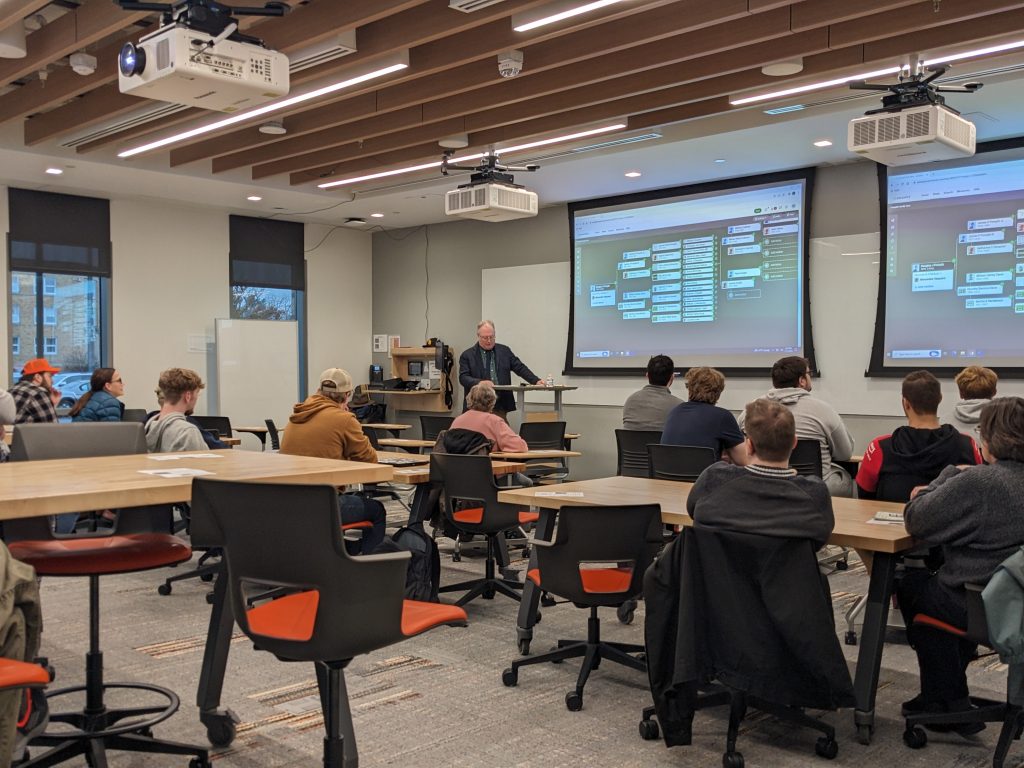Click here to listen to Doug Forsyth’s interview about the project with London Mitchell of “Staying in Contact” podcast
When you receive an envelope containing a Confederate bullet in a box of family documents, you’re going to be inspired to do a little digging.
That’s what happened to Dr. Douglas Forsyth, a Professor of History at Bowling Green State University, two summers ago when he received a small family archive from an aunt. Among the papers, the small cardboard box contained an envelope labeled “Rebel bullet that struck a tree beside me at Chancellorsville Va., May 5th 1863.” The bullet had been preserved by Henry T. Peck, a volunteer in the 118th Regiment of Pennsylvania Volunteers and a veteran of notable Civil War battles including Shepperdstown and Gettysburg. Peck was Dr. Forsyth’s second great-grandfather.
While the personal archive of Henry Peck was enough to reconstruct many details of his life, including an extensive correspondence with his brother during the war years, resources like Ancestry.com provided reams of documents in public archives that filled out more details about Peck’s service and additional information about the family. This sparked more questions, and what Dr. Forsyth thought would be “a couple months-long project,” has quickly evolved into two years of research – and counting.
Dr. Forsyth spoke about his experience researching his family history in a public lecture on November 17, 2023, at BGSU. While his family story is interesting in its own right, Dr. Forsyth used the presentation to consider ways family history research is changing.
Genealogical research has been a passion for many and requires meticulous research and documentation. In the past, it has often been considered unnecessarily introspective or parochial for professional historians, but Dr. Forsyth argued that shows like “Finding Your Roots” on PBS are showing new ways that family history and professional historical research can align to help the public connect to the past in new ways. Educators from middle school through college classrooms are using family history research projects to offer a more immediate sense of history to students, who can see the effects of large trends in history working themselves out in their own ancestors’ lives. It can also teach research perseverance, as students must wade through dozens of census documents, immigration records, and family oral histories to identify ancestors and connect the dots when sources are sparse.
Moreover, family history research opens difficult conversations about what one’s ancestors were doing at significant moments in American history. It’s relatively common for people to search their family trees for records of military service – especially Civil War and Revolutionary War veterans. In the past, some family history researchers have prioritized locating a documented Revolutionary War veteran in one’s family tree over documenting other ancestors, as it provides eligibility to apply for social organizations like Daughters of the American Revolution and Sons of the American Revolution.
Dr. Forsyth posed the question – what about other uncomfortable facts discovered during family history research? Census data provides proof of enslavement. How do researchers handle finding enslavers among their ancestors? Does this spark conversation and questioning, or is it passed over in favor of focusing on more palatable anecdotes from the family records? Asking these questions on a personal and family level first, Dr. Forsyth argued, can be key to facing hard truths about America’s past.

The talk sparked a lively discussion among audience members. Some shared their own challenges or triumphs with family history research, sharing tips and ideas with each other about overcoming language barriers or hard-to-find documents.
Some educators gave examples of projects that have benefited their own classrooms. Archivists and librarians from the Jerome Library encouraged researchers to think about how the online databases are constructed – what makes certain records more likely to be digitized than others, and what political, economic, and religious motives go into assembling these databases.
With broader access to digital archives and tree-building tools like Ancestry and FamilySearch, more people are exploring their family’s history than ever. Building these personal connections to people in the past can spark the desire to learn more about major events in local, national, and international history, and – hopefully – expose more people to a broader understanding of America’s past.
